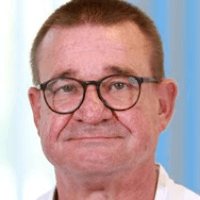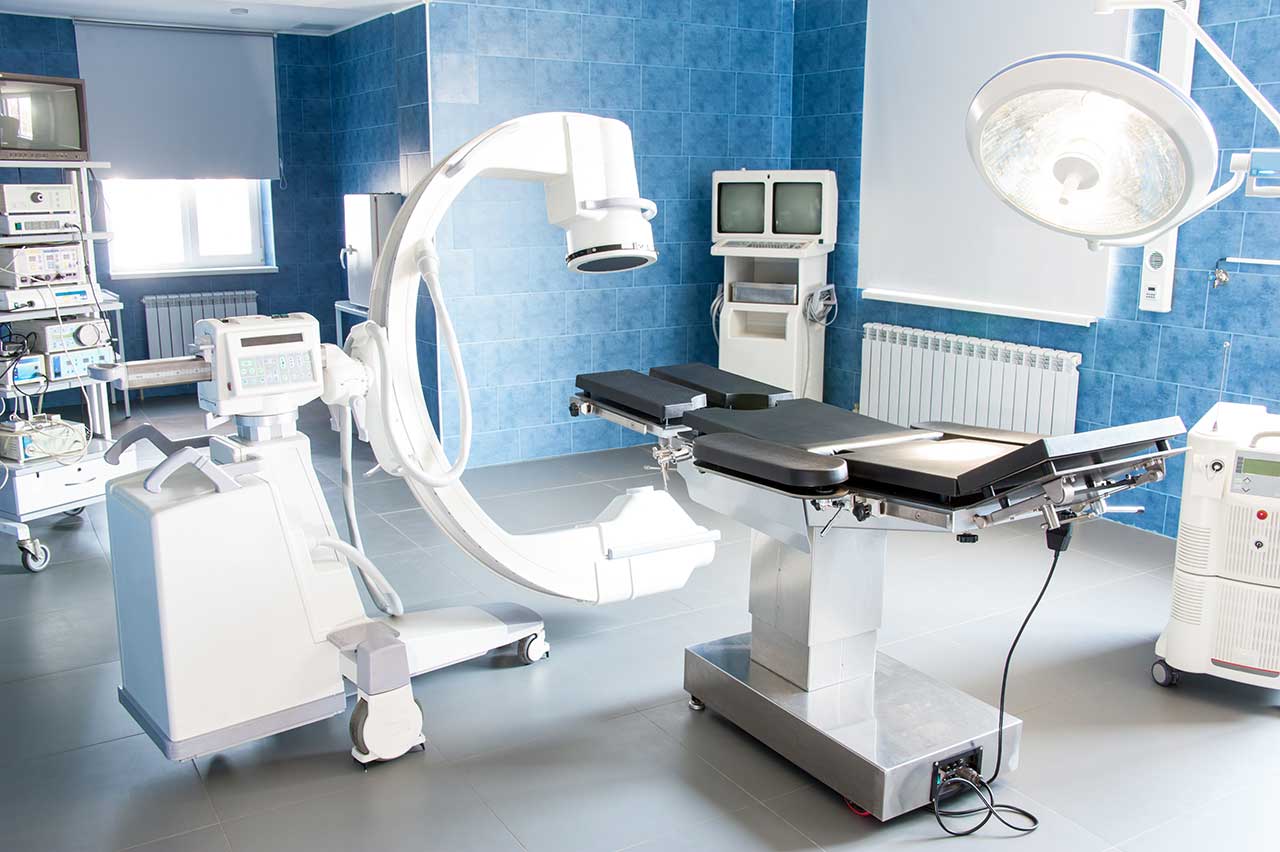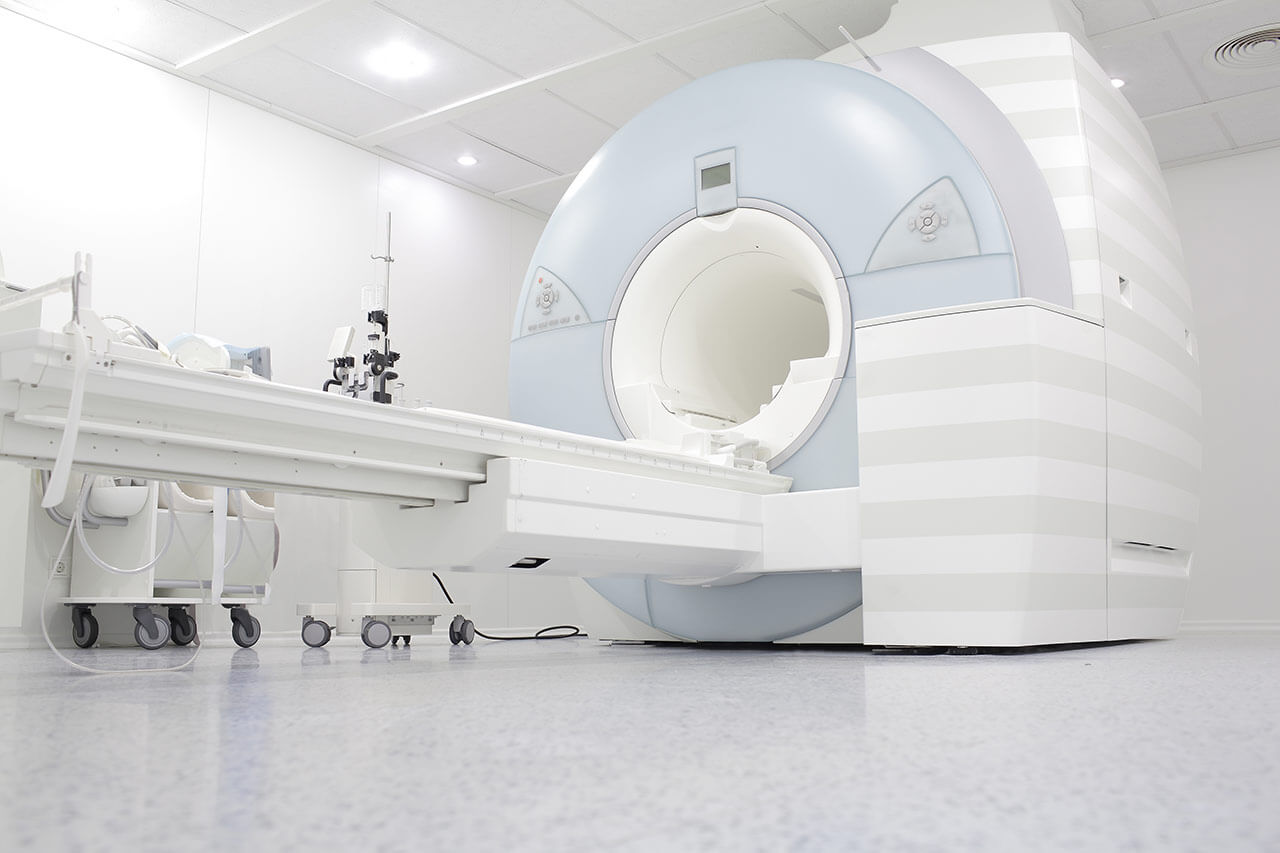
The program includes:
- Initial presentation in the clinic
- clinical history taking
- review of medical records
- physical examination
- x-ray examination of the foot
- CT/MRI (if clinically indicated, additional cost is 650/1200€)
- nursing services
- consultation of related specialists
- treatment by chief physician and all leading experts
- explanation of individual treatment plan
- written statement
Required documents
- Medical records
- MRI scan (if available)
Service
You may also book:
 BookingHealth Price from:
BookingHealth Price from:
About the department
The Department of Orthopedics, Trauma Surgery and Foot Surgery at the St. Joseph Hospital Haan offers accurate diagnostics, conservative and surgical treatment of musculoskeletal diseases and injuries. The department's doctors regularly perform arthroscopic interventions on the knee, hip, shoulder, elbow and ankle joints. The department cooperates closely with the Joint Replacement Center (endoCert certificate), which successfully performs total and partial knee and hip arthroplasty. An integral part of the work of the specialists of the healthcare facility is the treatment of foot diseases. In addition, the department has the status of a certified Center of Excellence for Autologous Chondrocyte Implantation. The therapeutic technique is used to repair cartilage defects and is available only in highly specialized medical centers in Europe. The department's patients receive medical care on an inpatient and outpatient basis. Thanks to the availability of innovative equipment for minimally invasive surgery, even major surgical interventions can be performed without hospitalization. The department is headed by Dr. med. Hans Bayer-Helms.
Arthroscopic interventions are widely used in the department for the treatment of lesions of the knee, hip, shoulder, elbow and ankle joints. When performing such operations, the surgeon makes a small incision through which he inserts an endoscope to examine or treat pathological changes in the joint. The main benefit of such interventions is their minimal invasiveness, which allows patients to recover as quickly as possible after treatment. Arthroscopic surgery is also often used for a cartilage transplant, during which the defects in the cartilage lining are repaired with autologous stem cells.
The department's doctors also specialize in joint-preserving surgery on the knee, hip, shoulder and ankle joints. When planning therapy, the physicians set themselves the goal of preserving the affected joint as much as possible, eliminating discomfort and restoring or improving the joint function. The department uses a variety of treatment options that are selected for each patient individually.
The medical facility offers all methods of correction of congenital and acquired foot malformations. These include interventions to repair toe deformities (for example, hallux valgus, claw toes), Albee-Delbet osteosynthesis, corrective surgery for flat valgus foot, treatment of ankle osteoarthritis, treatment of Achilles tendon injuries and diseases, etc. In most cases, the surgeons use low traumatic microsurgical techniques, so the patient does not need a long recovery, and he can return to his usual life as quickly as possible.
The department's team of doctors also provides highly effective medical care to the patients with vertebral compression fractures. In such cases, the specialists usually resort to vertebroplasty and kyphoplasty. Both procedures are minimally invasive, performed under general anesthesia or local anesthesia. The essence of the intervention is the injection of special bone cement into the affected vertebra in order to stabilize it. Whenever required, the physicians also simultaneously implant a special balloon, which is inflated until the natural height of the damaged vertebral bodies is restored. After the intervention, the patient wears a supporting corset for some time, after which the attending physician prescribes a set of exercises to strengthen the back muscles.
The department's special offer is autologous chondrocyte transplantation for the treatment of full-thickness cartilage defects. The procedure involves the harvesting of the patient's own cartilage cells (using a minimally invasive technique), their follow-up processing and cultivation with homologous serum in the laboratory. The final stage of the treatment is a revision intervention, during which the surgeon transplants the required number of obtained chondrocytes to the patient. The therapeutic manipulation prevents irreversible damage to the cartilage tissue and thus preserves the patient's own joints.
The department's key clinical focuses include:
- Orthopedics
- Arthroscopic surgery
- Interventions on the knee joint
- Meniscus tears
- Cruciate ligament tears
- Cartilage lesions
- Patellar instability
- Interventions on the shoulder joint
- Impingement syndrome
- Shoulder dislocation
- Shoulder arthrosis
- Interventions on the hip joint
- Impingement syndrome
- Articular lip tear
- Cartilage lesions
- Interventions on the upper part of the ankle joint
- Arthrosis
- Osteochondritis dissecans
- Interventions on the elbow joint
- Arthrosis
- Ligament injuries
- Interventions on the knee joint
- Joint-sparing surgery on the knee, hip, shoulder and ankle joints, including repair of the axis of the lower extremities
- Autologous chondrocyte implantation (cartilage tissue transplantation)
- Arthroscopic surgery
- Traumatology
- Treatment of injuries of varying severity: bone fractures, tendon and muscle tears, multiple injuries
- Treatment of the consequences of injuries (for example, reconstruction for the injuries of the Achilles tendon and cruciate ligament)
- Conservative and surgical treatment of spinal injuries
- Vertebroplasty
- Kyphoplasty
- Radiofrequency facet denervation
- Foot surgery
- Correction of congenital and acquired toe defects
- Treatment of foot and upper ankle osteoarthritis
- Corrective interventions for planovalgus foot deformity
- Treatment of Achilles tendon ruptures
- Other medical services
Curriculum vitae
Dr. med. Hans Bayer-Helms is the Head of the Department of Orthopedics, Trauma Surgery and Foot Surgery at the St. Joseph Hospital Haan. The specialist received his medical education at the Universities of Bochum and Goettingen. Dr. Hans Bayer-Helms has worked as an Assistant Physician at the University Hospital Bochum and University Hospital Tuebingen, as well as at the Bergmannsheil Hospital Bochum. This was followed by the position of a Senior Physician at the Essen University Hospital. Since 1999, Hans Bayer-Helms has been the Head Physician of the Department of Traumatology and Orthopedics at the hospital in Hilden.
Photo of the doctor: (c) St. Josef Krankenhaus Haan
About hospital
The St. Joseph Hospital Haan has a long history of providing top-class medical services and tender care for patients in accordance with Catholic principles. The priority clinical focuses include cardiology, pulmonology, gastroenterology, oncology, endocrinology, general and abdominal surgery, endocrine surgery, hernia repair surgery, orthopedics and traumatology, vascular surgery and joint replacement surgery. The outstanding level of medical services provided at the hospital is confirmed by the DIN EN ISO 9001:2015 quality certificate. More than 8,500 inpatients and about 11,000 outpatients are treated here annually. The hospital regularly demonstrates good treatment success rates, and therefore it is deservedly considered one of the best in the region.
The hospital has special competence in arthroplasty and foot surgery. According to the prestigious Focus magazine, the direction of diabetology is certified by the German Diabetes Society, and is also ranked among the best specialized departments in Germany.
The medical facility has modern equipment, which allows the doctors to carry out high-precision diagnostics and effective treatment of even extremely complex pathologies. The operating rooms are adapted for low traumatic endoscopic and laparoscopic interventions, so the number of classic open surgical interventions is negligible.
The best German doctors with vast clinical experience work at the hospital for the benefit of their patients. The healthcare facility has about 300 employees, for whom the patient and his or her individual needs and wishes always come first.
Photo: (с) depositphotos
Accommodation in hospital
Patients rooms
The patients of the St. Josef Hospital Haan live in comfortable and cozy rooms designed in bright colors. Each patient room is equipped with an ensuite bathroom with shower and toilet. The standard patient room includes an automatically adjustable bed, a bedside table, a wardrobe for storing personal belongings, a table and chairs for receiving visitors, a TV and a radio. The hospital offers Wi-Fi (for a small additional fee).
Meals and Menus
The hospital offers tasty and healthy three meals a day. Breakfast is served as a buffet. For lunch one can have a daily changing complex full menu, as well as a diet and vegetarian menu. Additionally, one can order afternoon coffee with pastries. As a rule, light meals are served for dinner. If necessary, you will be offered an individual menu.
Further details
Standard rooms include:
Religion
The hospital has its own chapel where Catholic services are held. If necessary, you can be accompanied to the place of the religious service.
The services of representatives of other religions are available upon request.
Accompanying person
Your accompanying person may stay with you in your patient room or at the hotel of your choice during the inpatient program.
Hotel
You may stay at the hotel of your choice during the outpatient program. Our managers will support you for selecting the best option.



